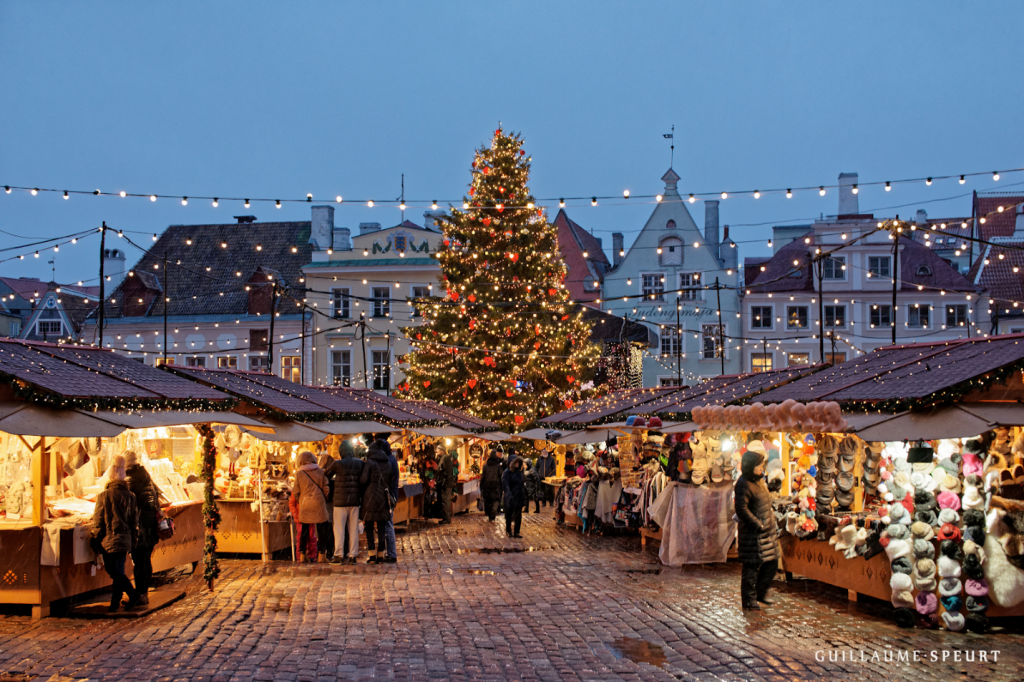The holiday season fast approaches (actually, it’s well upon us, so color us fashionably late) and we are gearing up for good food, good cheer, and festive togetherness amidst friends and family. ‘Tis the season for reflection, giving, and preparation for the new year.

Unfortunately, ‘tis also the season for an increasingly thinner wallet and extra strain on many a bank account. While retail businesses zoom into the black, it’s important to have a holiday financial plan in place, so you don’t fall headfirst into the red. Have no fear—there are some simple ways to balance generosity with budgeting without coming off as a holiday Scrooge. Below, we’ve outlined a few tips to help you stay on track financially over the holidays.
Create a holiday budget
First, start by creating a realistic budget for yourself. You can keep it simple with a general, overarching budget or you can create a plan for every last detail. Ideally, a budget for the holiday season would be created well in advance—say, around the end of August (or even at the start of the year so you can start putting money aside each month). But if you’ve already started spending and find yourself in over your head financially, it’s never too late to take a step back and reassess, cut, and reallocate your finances.

Creating a budget for the season can be broken down into a few simple steps:
Make a list of expenses
First, make a list of all holiday expenses. This includes gifts, travel, decorations, events, markets, parties, donations, food, etc. We even recommend throwing in a miscellaneous option, as last-minute expenditures are sure to crop up. It’s easy to budget for gifts while forgetting how everything else can add up and put you way over your expected limit.
Set a limit
Next, look at your finances (i.e., what can you afford) and decide on a spending limit for yourself. If money is tight, it’s better to lean more toward the frugal side than to overextend your finances.
Categorize and assign
Next, divide and distribute your budget amongst the different categories. You can keep this general, or get more granular by assigning a specific limit to each person/gift. The more granular, the easier it may be to shop and track your spending.
Decide on gifts, decorations, menus, etc. and create a shopping list
If you set a limit to each expenditure, it should be easier to think of gifts, food, decorations, etc. that fall within that limit. You can also set your menu (if you’re hosting a party) and shop accordingly to fall within your budget.
Keep track of your spending
Keep track of all of your purchases as you shop (in fact, bring your budget with you—print it out, or have it on your smartphone). This is key to staying within your budget, and will also allow you to make any necessary adjustments or reallocate funds to different categories if necessary.
Take advantage of sales
If you plan enough ahead of time, keep an eye out for sales. A lot of sales happen at the end of November, stemming from the American “Black Friday” sales (which now extend to many countries globally). Typically, things get more expensive the closer to the holidays you get (be it Hanukkah, Christmas, Kwanzaa, Boxing Day, or the like).
Gifts: think outside the box
Gift giving is a traditional part of the holidays, but remember that you can show your family and friends that you care without maxing out your credits cards. If you put thought and creativity into something, chances are it will be appreciated (and if it isn’t, that person probably isn’t worthy of your effort). So how can we get creative with gifts?

If you have a lot of family members (or friends), that can add up to a lot of gifts you have to purchase. Chances are, the numbers aren’t just daunting to you. Before any festivities begin, talk with your family members and decide on a plan to keep things merry without costing everyone a fortune. Here are some ideas:
- Only buy gifts for the children. Many families do this, as a lot of adults have a hard time even coming up with something they need.
- Organize an exchange in which you draw names and each person only buys a gift for one other person. This way, everyone gets a gift, but you don’t need to buy multiple gifts. It’s important to set a limit or maximum amount that can be spent so there aren’t big discrepancies.
- Make an exchange fun by getting cheap, funny, joke gifts and do a white elephant gift exchange.
- Have everyone tap into their creativity by making homemade gifts this year. Check Pinterest or Etsy for ideas if you need a little creative nudge. You can also set a price limit on this to keep things fair.
- Spend money and or time on an experience together. Go see a show, go ice skating or skiing, etc. Better yet, instead of a gift exchange, serve others by volunteering at a homeless shelter, hospital, or other location in need during the holidays.
- Have everyone collectively donate money to an agreed-upon charity. Especially if you feel there’s nothing you need, consider thinking of those in need.
New Year’s Eve: think outside the box
Ah, New Year’s Eve—a night with high expectations to which it rarely ever fulfills. Not going to lie, some of the best NYEs have been had when we were in bed by 11… But, so as not to be killjoy’s while keeping your budget top of mind, we suggest you consider some alternatives to an expensive night out on the town. Most bars and restaurants will charge a cover or flat fee for entry for NYE celebrations, which can get expensive if you wish to go to more than one place. On top of that, if you partake in spirits, you will need to factor in transportation (which means an Uber or taxi if public transportation isn’t available) as it’s never okay to drink and drive (seriously—don’t do it).

Although you may have a fear of missing out on the glitz and glamor of going out, often NYE ends up being a “reality versus expectations” kind of night. There is no shame in staying in with homemade hors-d’oeuvres, champagne or sparkling cider, and a movie. If you still want company, host a party and have everyone bring a dish or beverage to share. Come up with some ideas for games or have everyone teach each other how to make a special cocktail (or mocktail). Chances are, you can have just as much—if not more—fun staying in than going out, and your bank account will definitely thank you.
But it’s already mid-December, and I’ve already overspent!
Stay tuned for one of our next posts, in which we will discuss what to do if you’ve read all this and still overspent during the holidays. Because—let’s be honest—it’s highly inevitable (getting swept up in the holiday spirit and all that—we get it). We’ll discuss how to set, follow, and achieve your financial goals for the New Year. Until then, remember it’s never too late to take a step back and reassess. You can create a budget for the remainder of the year and cut back on your typical daily expenses (e.g., don’t eat out until the New Year, go simple on groceries, etc.).

Hopefully, you’ve found this helpful (you can even bookmark it for next year), and you don’t overextend yourself too much this holiday season. Remember that—although finances do play a part (be it big or small)—the holiday season should be a stress-free (or stress-limited) time of togetherness, cheer, reflection, and hope for the New Year. So happy holidays from Bondora, and may your season be merry and bright!


